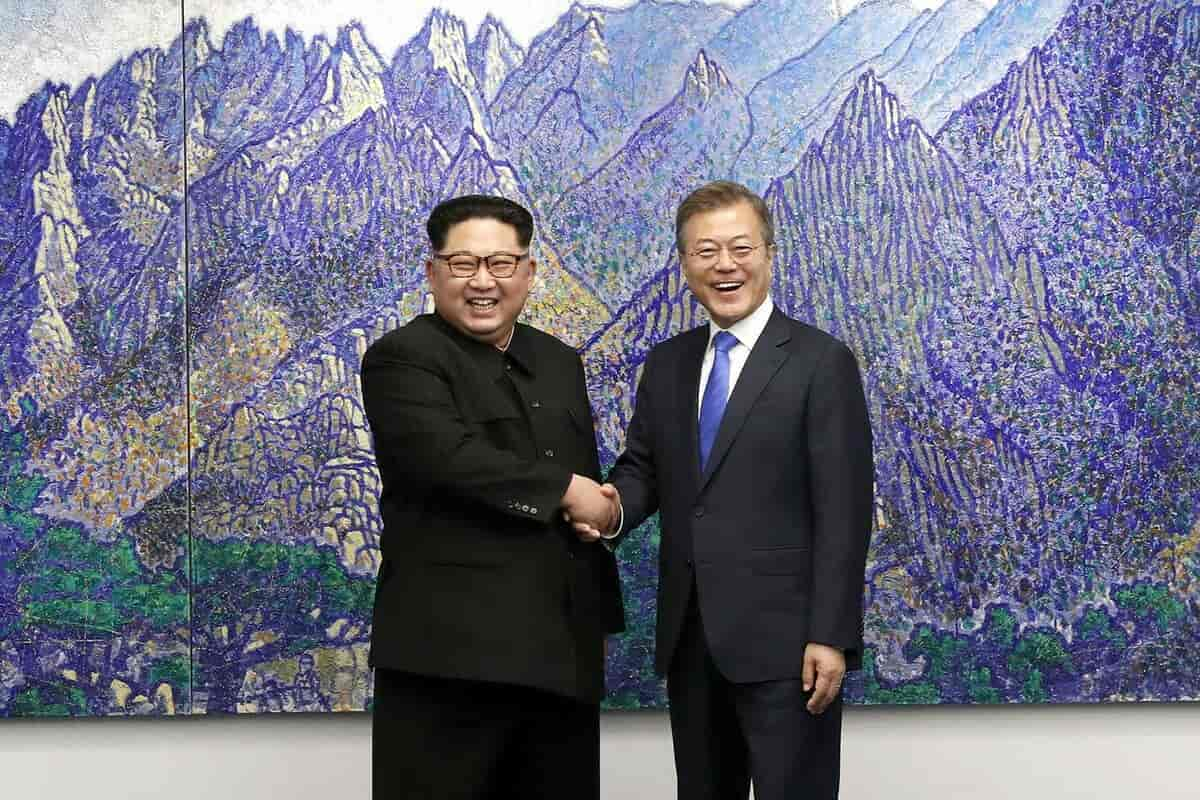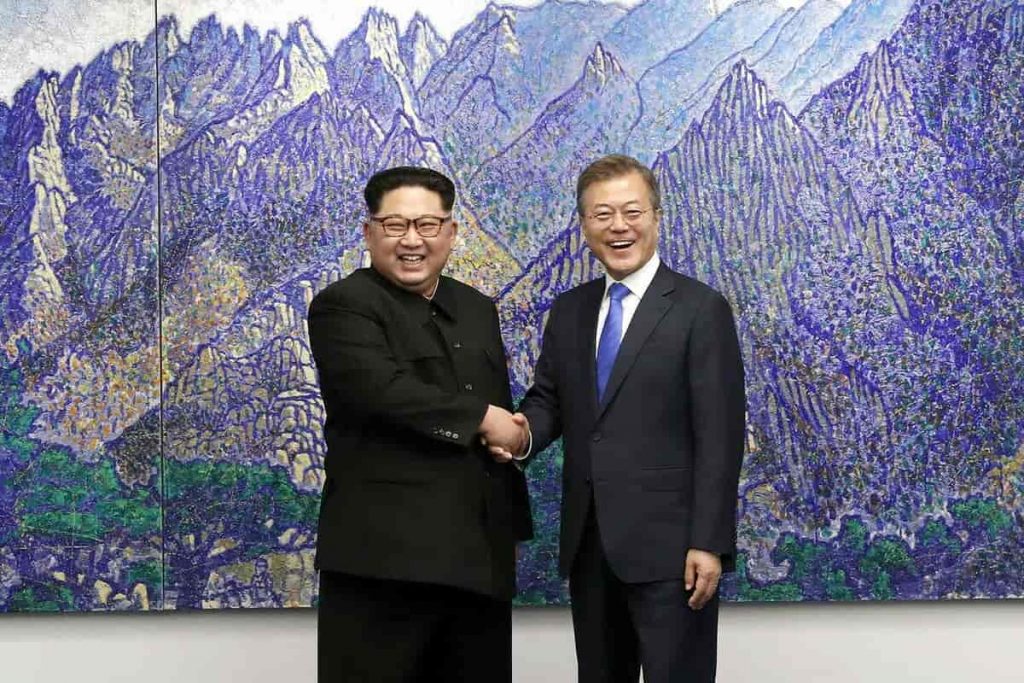Lines of communication between the DPRK and South Korea have been reopened a year after the People’s Republic stopped answering calls in response to a propaganda offensive from the South. The conflict included the South sending balloons full of leaflets and pamphlets over the normally out-of-bounds demilitarised zone as well as the DPRK destroying an inter-Korean liaison office in retaliation.
In a series of personal letters that go back to spring, President Moon Jae-in of South Korea and Kim Jong-Un of the Workers’ Party of (North) Korea, have had an ongoing discussion about the possible reopening of communications.
Reunification is a cause held dearly by many Koreans, but hopes of progress inside the split nation are consistently stagnated by the continued occupation led by US troops. Some living Koreans witnessed genocide against their countrymen in what is often called the ‘Fatherland Liberation War’, although this title could still be considered premature whilst the southern half of the peninsula is still heavily patrolled by the same invading army. The conflict, otherwise known as the Korean war, had a larger proportional civilian death toll than both WWII and the Vietnam war and incurred the destruction of all of Korea’s major cities. By the time the US and its allies were finished, there was not a single hospital building left standing in North Korea.
The news comes on the same date on which delegates from the US, DPRK, and China signed the armistice agreement of 1953 which agreed to halt “hostilities and all acts of armed force in Korea until a final peaceful settlement is achieved.”
68 years later the DPRK, despite often being deemed as ‘rogue’ and ‘dangerous’, remains encircled by longstanding aggressors. Japan, who still refuses to apologise for the crimes against humanity inflicted upon the peninsula during their colonial reign. The US, whose commitment to preventing democracy in Korea means they are yet to admit any wrongdoing whilst performing military drills atop their former killing fields. The South Korean government round out the three who in the last week have emphasised a unified policy between the three against a still-recovering nation whose “next move is unpredictable.”
Since the only country to ever drop a nuclear bomb continues to skulk around the DPRK’s front yard, Pyongyang has remained adamant that they are within their rights to possess weapons (which they have never dropped on another nation) for self-defence. Any significant reduction in tension in Korea will be dependent on the two governments communicating without the shadow of the US reaper looming over them. The resumption of direct communication between Seoul and Pyongyang could be an opportunity for that darkness to be side-stepped.
Mally Kakembo




